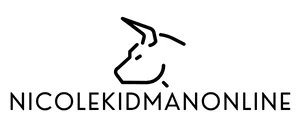Table of Contents
ToggleJump into the world of early childhood education like never before. In today’s rapidly evolving educational landscape, the 15th edition of Early Childhood Education Today reveals more insights than a toddler’s gaze at a cookie jar. This edition isn’t just a textbook: it’s a game changer that reflects the critical shifts in teaching methods, the vital role of families, and the community’s importance in a child’s education. Join us as we unpack the lessons, benefits, and challenges woven into the fabric of young learning, proving that the foundation laid in early childhood could shape entire generations.
Overview of Early Childhood Education

Historical Context and Evolution
Early childhood education has undergone a remarkable transformation over the decades. Originally focused on care rather than education, it has evolved into a comprehensive system that highlights developmental milestones and academic readiness. The 20th century brought significant reforms influenced by thinkers like Maria Montessori and John Dewey, who emphasized experiential learning. Fast forward to today, and early childhood education is recognized as essential for fostering cognitive, social, and emotional development in children. It’s no longer seen just as pre-schooling but as a crucial phase in a child’s educational journey.
Current Trends in Early Childhood Education
Today, several trends shape early childhood education. One prominent trend is the shift towards inclusive classrooms that embrace children of diverse backgrounds and abilities. Programs emphasizing social-emotional learning are gaining traction, helping children develop resilience and interpersonal skills. The integration of technology in classrooms also enhances learning experiences, making lessons interactive and engaging. As we consider the 15th edition of Early Childhood Education Today, we see these trends meticulously documented and explored, setting the stage for educators to adapt to the dynamic needs of children.
Importance of Early Childhood Education
Benefits for Children and Families
The importance of early childhood education cannot be overstated. For children, engaging in high-quality educational programs results in improved academic performance and social skills. Research consistently shows that children who participate in early education are more likely to succeed in school and life. Families, too, reap the rewards. Early education allows parents to engage actively in their children’s development. It equips them with strategies to support their child’s learning at home, fostering a strong home learning environment.
Impact on Society and Future Generations
Also, investing in early childhood education has profound implications for society as a whole. Studies indicate that quality early education leads to lower dropout rates, reduced crime rates, and improved job prospects, producing a more educated and skilled workforce. The long-term benefits ripple through communities, fostering environments where children grow into contributing adults. The 15th edition aptly illustrates these societal impacts, emphasizing that when children thrive, everyone benefits.
Key Components of Effective Early Childhood Education
Curriculum and Instructional Strategies
Effective early childhood education hinges on a solid curriculum designed to engage young learners. Curriculums today incorporate play-based learning and experiential activities, recognizing that children learn best when they are engaged. Instructional strategies also vary from child-centered approaches to structured lesson plans that accommodate different learning styles and paces. Educators have a wealth of resources available to create enriched learning environments, making this field an exciting and evolving try.
Role of Educators and Caregivers
At the heart of effective early education are the dedicated educators and caregivers who guide children through their formative years. These professionals not only deliver lesson content: they nurture curiosity and emotional growth. Their role extends beyond the classroom, forming bonds with families and offering support tailored to each child’s needs. Recognizing their pivotal role, the 15th edition provides insights into training, tools, and techniques necessary for fostering effective relationships with children and their families.
Family and Community Involvement
Building Strong Home-School Connections
Family involvement is paramount in early childhood education. Engaging parents fosters a collaborative approach to learning, enhancing children’s educational experiences. Schools today carry out various strategies to strengthen home-school connections, from parent-teacher conferences to community workshops. Open channels of communication create an environment where families feel valued, eventually benefiting the child’s development.
Engaging Community Resources
Communities also play a vital role in supporting early childhood education. Accessing local resources, such as libraries, museums, and community centers, enriches educational opportunities for children. Collaboration between schools and community organizations fosters a well-rounded learning atmosphere, providing children with diverse experiences that enhance their growth. The new edition underscores these partnerships, spotlighting successful models that make education a collective effort.
Challenges Facing Early Childhood Education Today
Funding and Resource Allocation
Even though the many benefits, challenges persist in early childhood education, particularly concerning funding and resource allocation. Many programs struggle to secure consistent funding, which affects the quality of education they can provide. This financial instability can lead to larger classroom sizes and reduced staff training opportunities. As the 15th edition highlights, advocating for more robust funding mechanisms is crucial to ensure equitable access to quality education for all children.
Equity and Access Issues
Equity and access remain ongoing concerns in the realm of early education. Disparities in access to quality programs are evident, often influenced by socio-economic factors. Low-income families, particularly, face barriers that can hinder their children’s educational opportunities. The latest edition addresses these critical issues, emphasizing the need for inclusive policies that prioritize equitable access to quality early childhood education for every child, regardless of their background.




